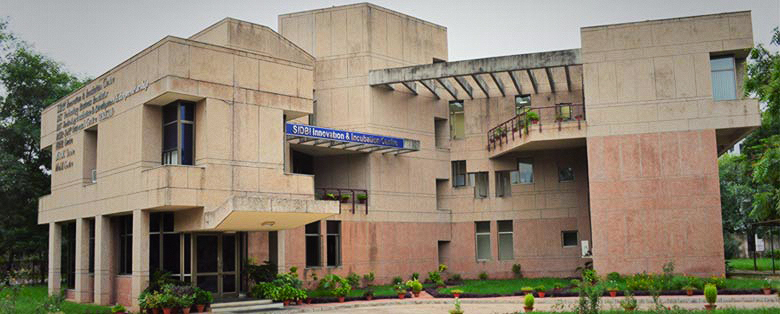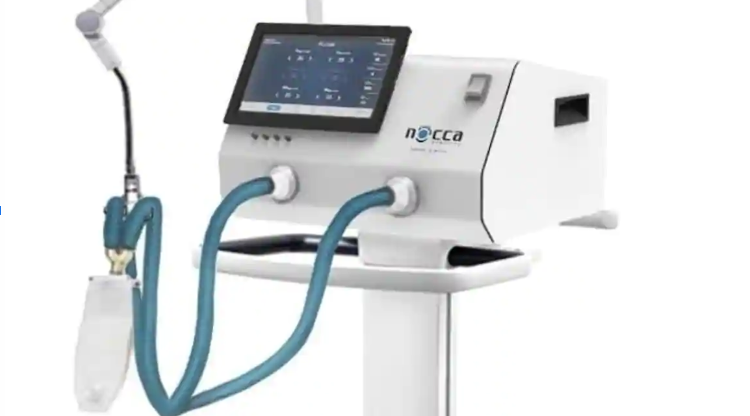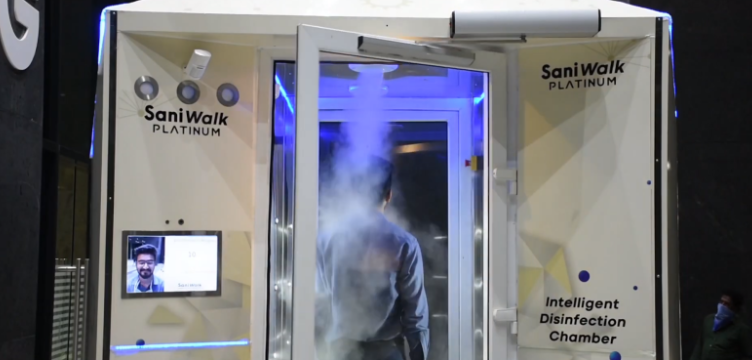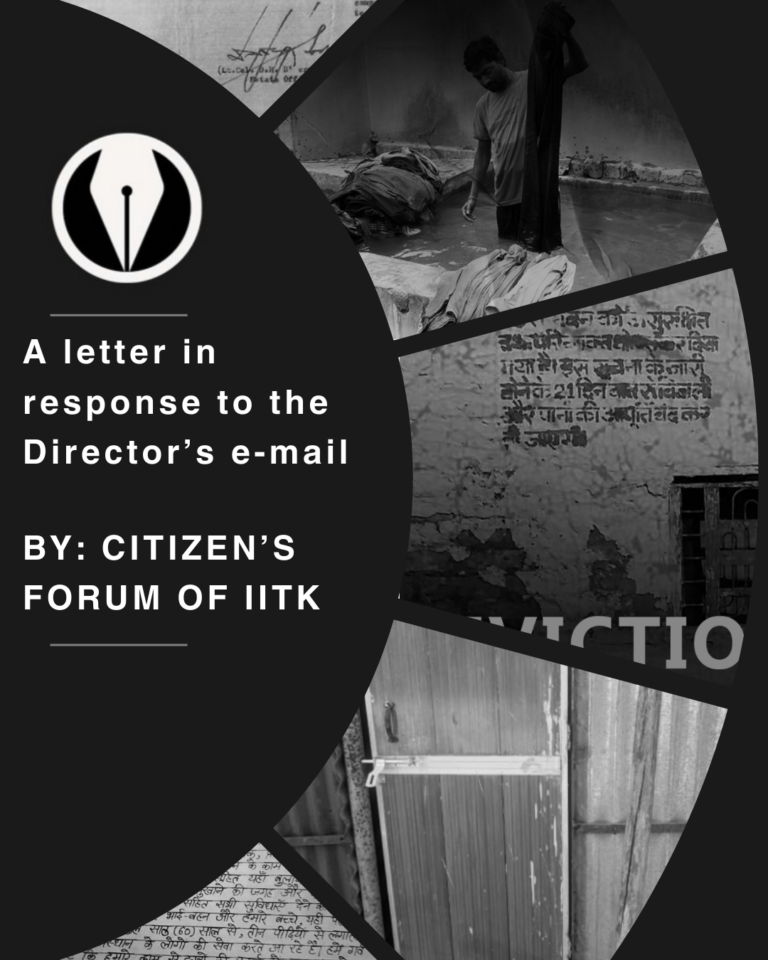To contribute to the country’s fight against the COVID-19 Pandemic, our institute, IIT Kanpur has had a significant role in Commercializing three ground-breaking innovative healthcare solutions within three months, with the help of some of the startups incubated here. Here in this article, we would be covering the products and the people behind it all.
————————————————————————————————————————————————————————-
The Ventilator
Learning from the western countries, many entrepreneurs in India had already started preparing equipment like Ventilators and PPE Kits for the times when the hospitals would be facing severe crises in different parts of our country. One of the leaders in this race of innovation were the co-founders of Nocca Robotics – a start-up established in 2017 by two of IIT Kanpur’s alumni: Mr. Nikhil Kurele and Mr. Harshit Rathore. They took up the challenge and came up with an affordable full-fledged, ICU-grade ventilator which is now being supplied to various hospitals throughout the country.
This ventilator system is indigenously developed by Nocca Robotics and IIT Kanpur under the supervision of Prof. Bandyopadhyay after discussions with doctors and medical professionals. Initially, Nocca was in the process of building a pressure-controlled ventilator, aimed only to cater the needs of COVID-19 patients but during the process, several other guidelines, laid out by the government, were taken into account and what they ended up with is an ICU-grade ventilator approved by the Technical Evaluation Committee constituted by Government of India
One of the key features of the said ventilator is its ability to reduce the risk of the spread of coronavirus through the patient. When a COVID-19 patient exhales or coughs, the air is loaded with droplets containing the virus, which is extremely infectious. This ventilator has UV chambers which kill the virus and reduce the viral load of the exhaled air. The ventilator can run on ambient air, eliminating the requirement of medical air supply line. Another notable feature of the ventilator is it’s portability, so it can be used in locations other than the hospital to handle the patients. It is much more energy-economic than the regular ventilators, so it can work on battery for at least 4 hours.
Being a medical equipment of vital significance, quality testing, and maintaining high standards were of utmost importance, so all the testing has been done and passed. By the end of July, production of about 5,000 units is expected and if the demand intensifies, it could be ramped up to 15,000 units by mid-August. India’s leading missile and ammunition manufacturer PSU Bharat Dynamics Limited is manufacturing the ventilator, while Indian medical device maker Avi Health Care is also on board to assist during the manufacturing process. In the May edition of ‘Mann ki Baat’, the PM praised Nocca Robotics and IIT Kanpur for this initiative.
SaniWalk, a contactless full-body Disinfectant Chamber
Considering that the infection is spreading like wildfire, preventing the spread is as necessary as the cure, perhaps more. Nevertheless, the hard closure of the economy has cost many people terribly, so it becomes the need of the hour to re-open the markets and public places. But this raises the question: how can we flatten the curve? To deal with this problem, Cupro HealthTech, headed by Dr. Madhu Vasepalli, has devised a solution: SaniWalk, a contactless full-body sanitization system.
Cupro HealthTech, a Hyderabad based company incubated at the Startup Innovation and Incubation Centre, IIT Kanpur came into existence in the early days of this COVID crisis. They started out as a team of 3 people only, but have now grown to about 15 members, with 5 interns from IIT Kanpur itself. According to Dr. Vasepalli, the concept was quite vague initially, but with the able and ample support of IIT-Kanpur, especially Ms. Aditi Kumar and Prof. Bandyopadhyay, they could materialise the design. Later, Prof. Sarvanan Matheshwaran helped in fine-tuning the system.
Talking with Dr Vasepalli, he told us that, “A disinfection chamber works regardless of the fact that the incoming person might not be a suspected case. So we thought of developing a process which would be far more efficient in utilizing the resources. The most common symptom is fever. So we developed an AI-powered contactless temperature detecting system. If the person is detected with fever, the door for the spray chamber would not open, and he would not be allowed to go into the public, if this is installed in public places.” They have installed a facial recognition camera which would help in maintaining all the records in a central server for multiple entries of an individual.
On 16th of June, the Government of India through their official twitter handle, commended Dr. Vasepalli and his team over this innovation. Currently, the first of its kind, this chamber has been successfully installed in AIG Hospital, Hyderabad.
SWASA N95 Masks Manufacturing Facility
The N95 masks which got fame due to increasing pollution in North India were also one of the affordable gear for protection against COVID-19 infection. Since the emergence of the COVID crisis, E-Spin Nanotech, another IITK startup has produced about 70 lakh ‘SWASA’ N95 and N99 masks, which are being used across the nation.
Headed by Dr. Sandip Patil, E-Spin was formed back in 2010 under the aegis of SIIC, IITK. In the last decade, it has evolved into a full-fledged company, which is specialised in making nano-fiber and allied products.
Recently, their focus has shifted towards antibacterial and anti-viral nanofibers. Dr. Sandip told us:
“We are already working on nanofiber-based antimicrobial membranes. These can be used in the pharmaceutical industry, in our homes for household sanitization, A/C for air purification, and also in automobiles. These would be washable and reusable, so you don’t have to throw them away after the use.”
This is a first-of-its-kind initiative by any IIT or a Technology Business Incubator of an academic institution of India.
Dr. Nikhil Agarwal, the CEO of FIRST, IIT Kanpur, who has been ensuring that products and innovations like these are quickly commercialized, said-
“We are pretty sure to fulfill the demands of the people. Earlier, N-95 masks were imported in India due to insufficient local production, so it cost us about Rs. 300 per mask but thanks to this setup, we are able to cut short its price to just about Rs. 50 and also have a similar quality like the imported ones. Due to the steep rise in the number of COVID-19 patients, the consumption of masks dramatically increased. In the campus itself, masks are being used by healthcare workers, staff members, and the general public.”
On June 18th, the Director of our institute inaugurated the ‘SWASA’ mask manufacturing facility in the IITK campus. Talking about this development, he said,
“The completely automated facility can produce 25,000 masks daily. The idea behind this initiative is to contribute to the country’s collective effort to fight the COVID-19 pandemic. This is just one of many efforts by IIT Kanpur to develop innovative solutions to tackle the ever-quick spread of the virus, and devising a cure for it. Ever since the virus tapped into our nation, it has been wreaking havoc on every sphere of humankind. In India, the disease has had a major effect on the unorganised sector and the people involved, with many of them losing their jobs. It has clearly given a huge blow to our economy, but one of the biggest issues that the disease has highlighted is definitely the inadequacy of resources in the healthcare sector.
Here at IIT Kanpur, the efforts to develop innovative and affordable solutions were started right around mid-March. Ever since, professors, researchers, entrepreneurs and students have been working hard to come up with solutions, which are not only highly functional, but also cost-effective.”
Prof. Bandyopadhyay, the Professor-In-Charge of SIIC, has not only been involved in these innovations, but has also been overseeing the various projects and their development. Talking about these innovations, he said –
“As promised, a highly sophisticated, human safe, intelligent disinfection tunnel developed by SIIC incubated company Cupro Health Tech has been commercialized. The first unit was installed at AIG Hospital, Hyderabad. Moreover, the Nocca Robotics team, have made sales demonstrations for its low cost ventilators in two hospitals by respective state government orders, as of now. Mass manufacturing at one location has started. The same at 2 more locations will start within the next 2 weeks. The alacrity with which my colleagues responded to make all this happen fills me with pride.”
Relevant Links:
Nocca Robotics: https://noccarobotics.com
Cupro HealthTech: https://www.cuprohealth.com
E-Spin Nanotech: https://www.espinnanotech.com
SIIC, IITK: https://siicincubator.com
Credits:- Aaryan Mehar, Devansh Parmar, Dravya Marwaha, Snehil Saluja, Milind Nigam.













